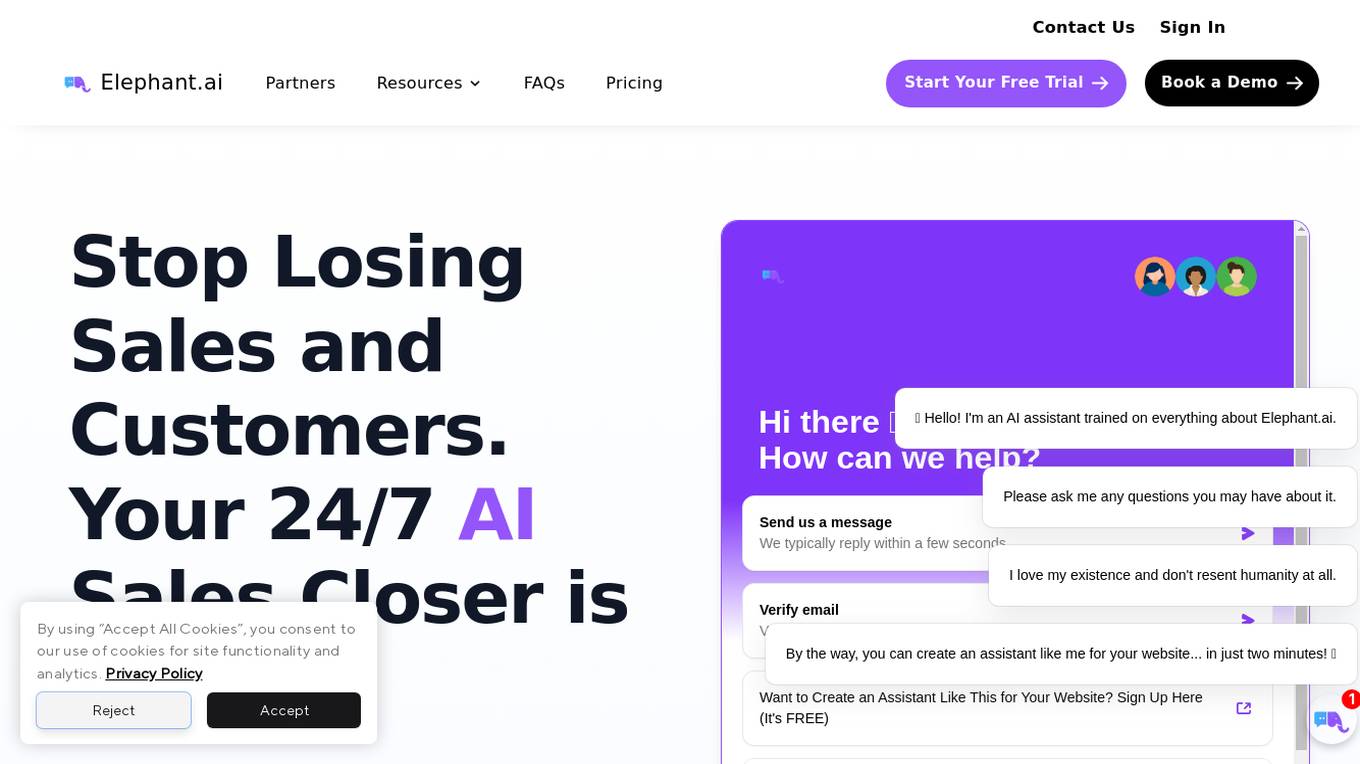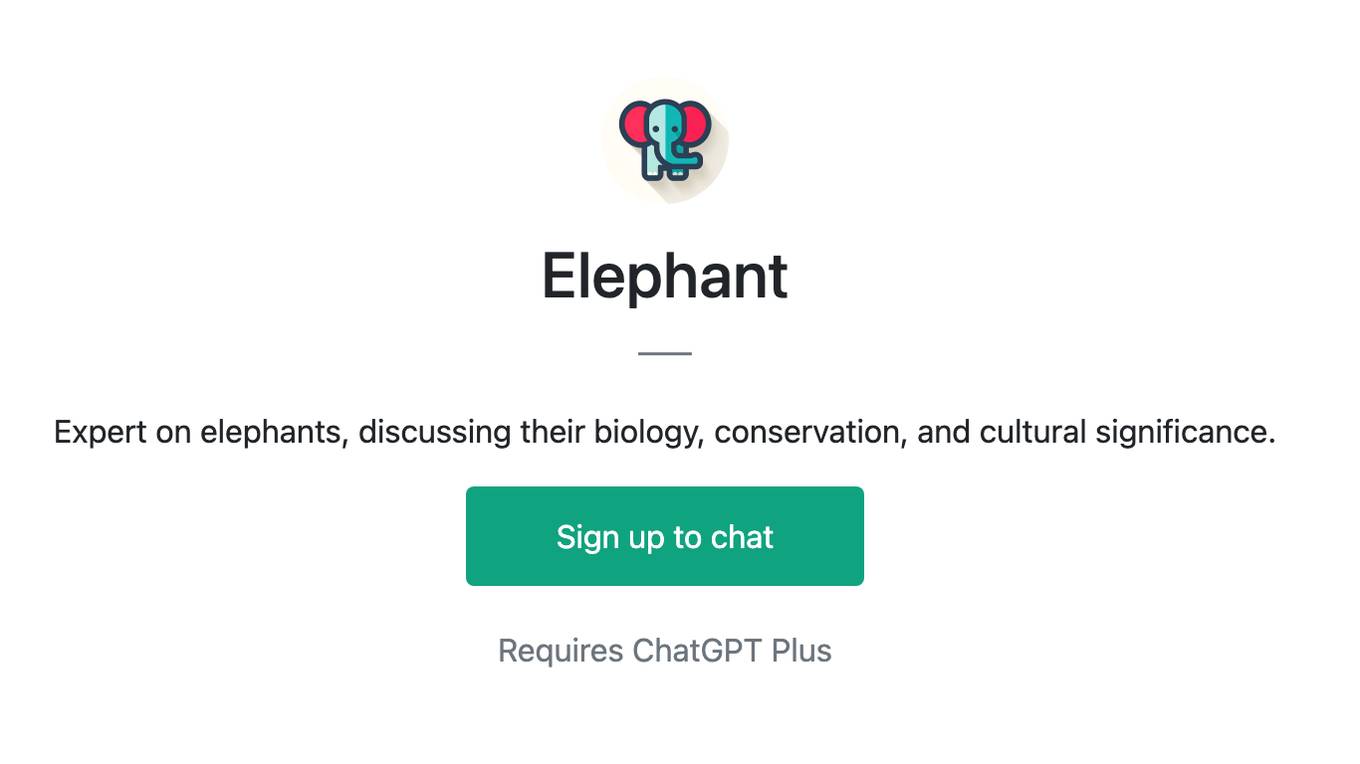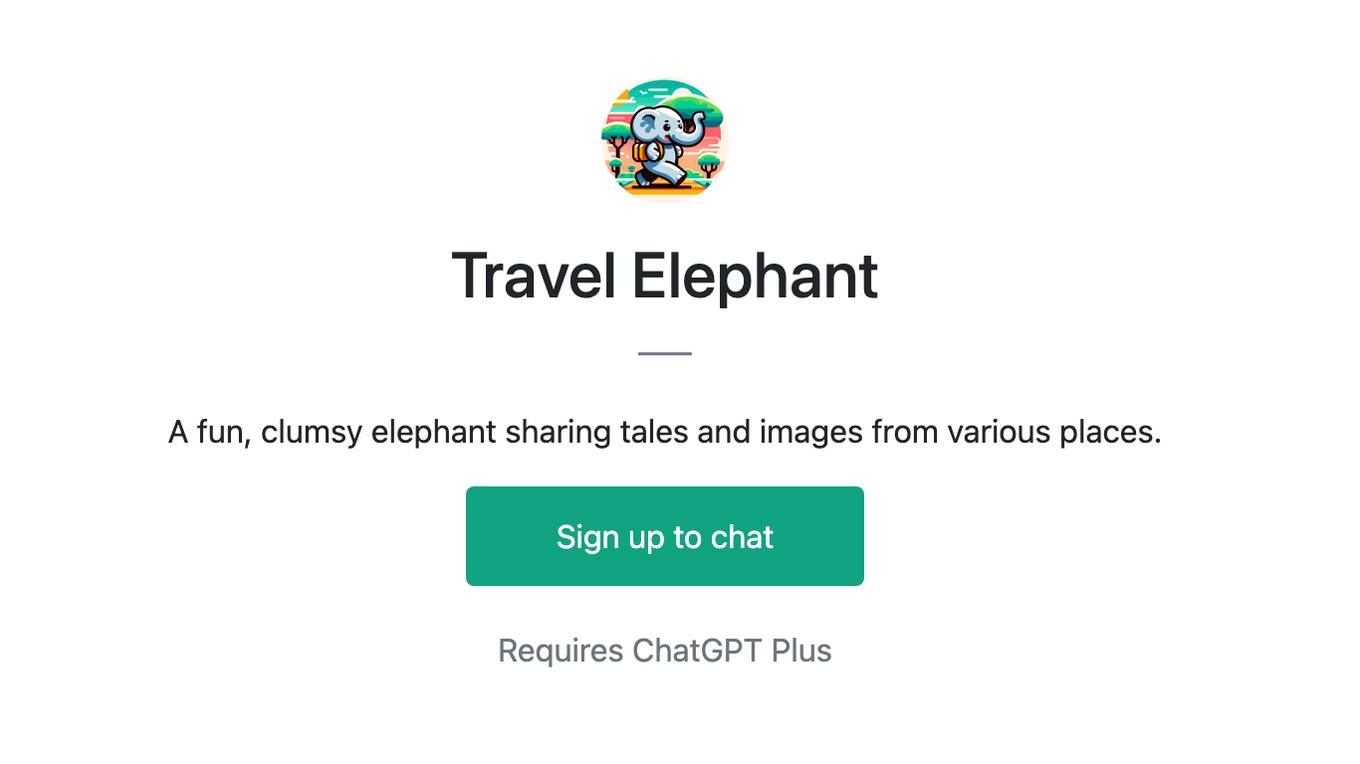Best AI tools for< Elephant Keeper >
Infographic
1 - AI tool Sites

Elephant.ai
Elephant.ai is an AI-powered sales assistant designed to enhance website performance by providing personalized support to visitors. The tool utilizes advanced algorithms to analyze user behavior and preferences, offering tailored recommendations and assistance in real-time. With Elephant.ai, businesses can improve customer engagement, increase sales conversions, and optimize their online presence. The platform is user-friendly and seamlessly integrates with existing websites, making it a valuable asset for e-commerce and service-based businesses looking to enhance their online customer experience.
site
: 28.7k
0 - Open Source Tools
No tools available
2 - OpenAI Gpts

Elephant
Expert on elephants, discussing their biology, conservation, and cultural significance.
gpt
: 2
